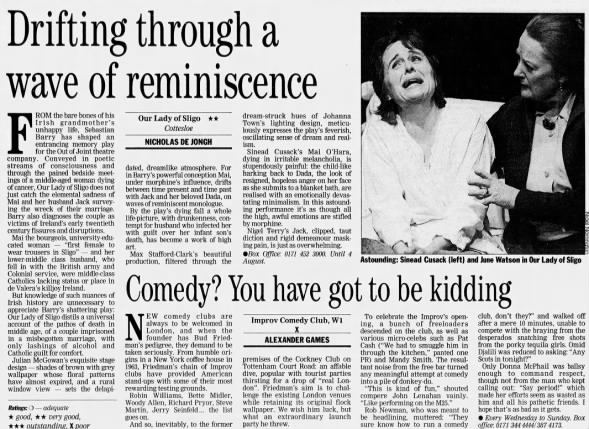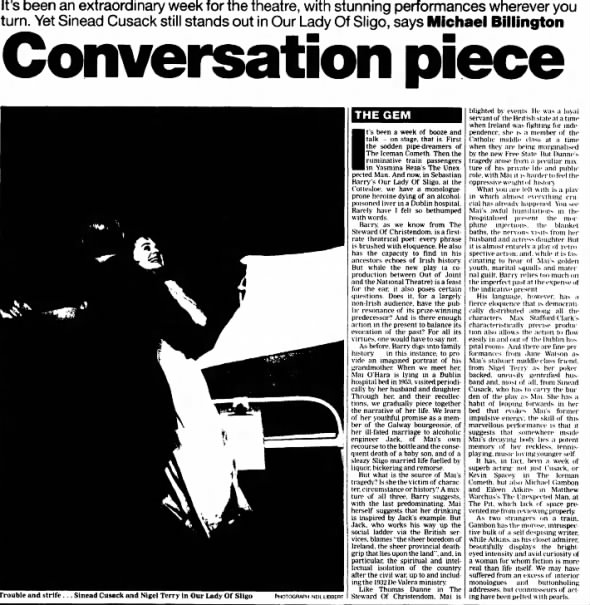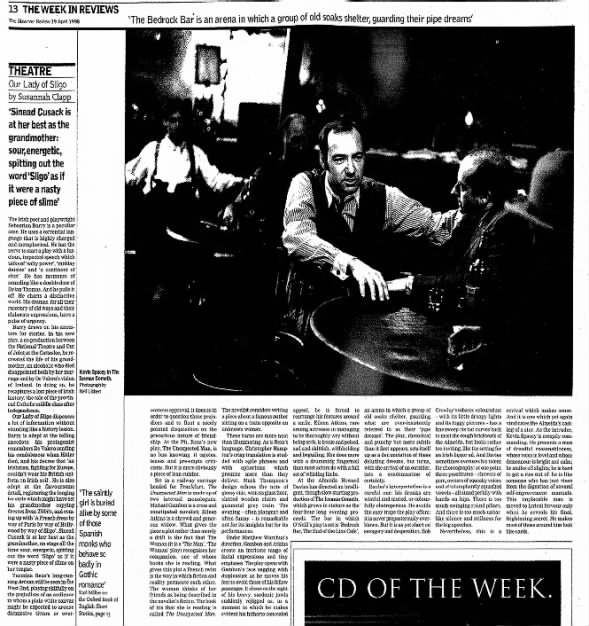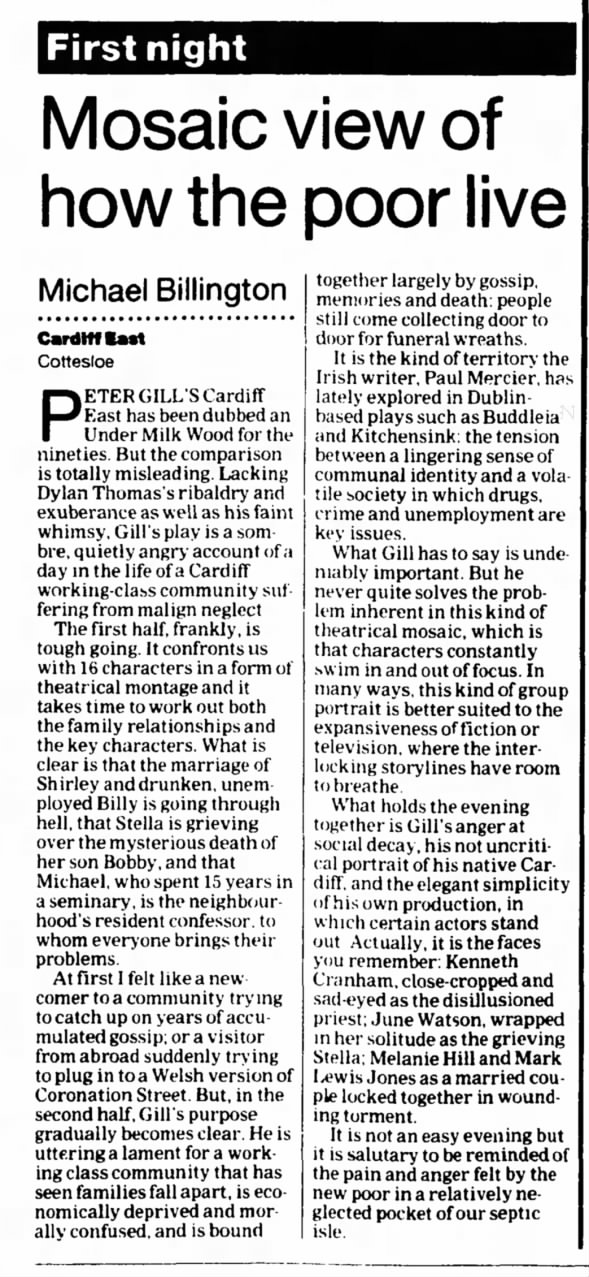A conversation with Janie back in January.
Janie: I’ve just heard Front Row. They were talking about an amazing new play by Caryl Churchill at the Royal Court.
Me: (inquisitively) Yessss…
Janie: …so why haven’t you got us tickets for it?
Me: (nervously) Cripes – I’ll look into it. Leave it to me.
But of course, I had already bought tickets for Escaped Alone at the Royal Court. I’d bought tickets for the play so long ago, Janie and I had both forgotten about it. So long ago, that we hadn’t then quite worked out when we were going to take our winter break. I had, for that reason, booked for right at the end of the run, 12 March, to ensure that our holiday window was as wide as possible.
By the time we returned from our winter trip to Nicaragua, we were aware that Escaped Alone had received rave reviews from almost all the critics, that several of our friends had already seen it and that no-one seemed very able to explain what the play is about.
Thus we went to Sloane Square with a great sense of expectation; perhaps that in part explains why both of us found the play rather disappointing. Yet I didn’t find the piece quite as obscure and mysterious as critics (and friends) inferred. So, for those readers who wonder what this play is about, (even those of you who have seen and/or read it) here is my take on the work.
Caryl Churchill gives us, at the front of the play text, the quote “I only am escaped alone to tell thee” from the Book of Job (Job’s servant with bad news) and also from the epitaph to Moby Dick (Ishmael’s words). But I don’t think this clue leads naturally to the idea that Mrs Jarrett’s (Linda Bassett’s) dystopian speeches are supposed to be her describing actual experiences prior to visiting the garden and/or that the garden scenes take place while other aspects of the world are turning hellish.
The start of the play reveals that Mrs Jarrett knows the other three women only slightly when she joins them in the garden. The other three clearly know each other well; that familiar trio are given and use only first names. It is only Mrs Jarrett, the surnamed partial outsider, who steps outside the comfort of the garden to make dystopian speeches in partial, flashing light of the outer stage.
In the garden scenes, as the play unfolds, each of the three familiar friends makes a relatively lengthy speech in which they reveal their inner demons. In Sally’s case, it is the fear of cats. In Lena’s case, it is workplace-induced depression/agoraphobia. In Vi’s case, it is obsessive thoughts about her killing of her husband and the effect it has had on her life since. Mrs Jarrett doesn’t make such a speech within the garden – we have heard plenty about her demons in her dystopian speeches from the outside. So Mrs Jarrett merely says the phrase “terrible rage” many times over, when it is her turn to open up to the others with a longer speech in the garden.
The point is, I think, that all four women are describing inner demons; Mrs Jarrett only articulates hers outside the garden. We all have inner demons, which we can only really “escape alone”, or sometimes reveal to friends as personal dystopiae, because those worries are unique to us. There is an interesting counterpoint here with Hitchcock’s take on inner fears (which in his case manifest as plot devices and ways of making the audience anxious) – fresh in my mind after seeing Hitchcock/Truffaut the previous day. Perhaps Churchill’s subtle focus on the notion that everyone has inner fears explains why Escaped Alone seems to have resonated so well with the critics (and perhaps also audiences).
Janie and I have seen a fair smattering of Caryl Churchill in our time. They are often short works, with an absurd, obscure and/or dystopian feel to some or all of the piece. This piece didn’t seem, to us, to add much to that Churchill oeuvre. Among the critics, only Billington (whose review was also very good) at least alluded to dystopia overkill and the use of similar ideas in earlier Churchill works. Blue Heart, A Number and especially Far Away all came to my mind while watching the play, prior to reading that Billington review.
Yes, Escaped Alone had a super set. Yes, the production had a superb posse of senior actresses, but the play/production simply didn’t resonate well with either of us, unlike many of Churchill’s earlier works.
The audience was ecstatic at the end of the show, but then it was a last night audience and the critics had universally told readers that the play/production was top ranking. Thus the audience went into critic-induced raptures at the “Da Doo Ron Ron” rendition by the four ladies in the garden, sandwiched between two of Mrs Jarrett’s dystopian speeches, soon after Sally’s cat phobia speech, just before Lena’s depression/agoraphobia one. An excessive response, in my view, to something that was a nice touch but not a coup de théâtre.
Similarly, the universal acclaim for this play/production seems excessive to both of us, although perhaps this piece does far more for people who have been less steeped in Caryl Churchill.








